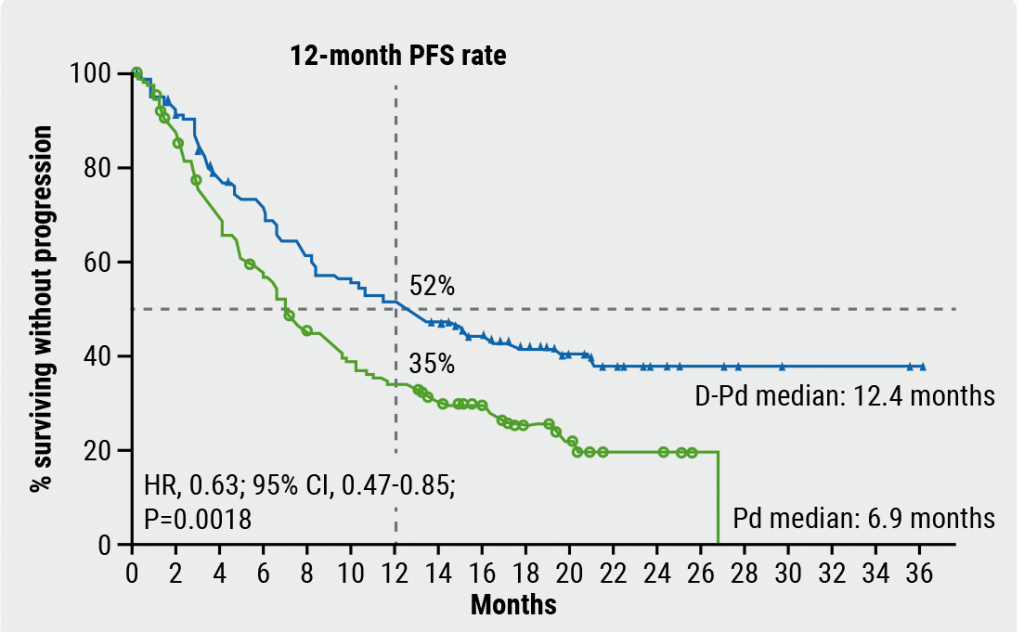Researchers examined data on 11.8 million persons with cancer in the National Cancer Database who were diagnosed between 2003 and 2016 and had gender identity data (male, female, or transgender) available in their medical records. Overall, 589 individuals in the database were identified as transgender.
Compared to cisgender patients diagnosed with cancer, transgender individuals were significantly more likely to be diagnosed with advanced stage lung cancer (odds ratio 1.76).
Transgender patients were also significantly less likely to receive treatment for kidney (OR 0.19) and pancreatic cancer (OR 0.33). They were significantly more likely to have poorer survival outcomes than cisgender patients for non-Hodgkin lymphoma (hazard ratio 2.34), prostate (HR 1.91), and bladder (HR 2.86) cancers.
"Transgender people face many barriers to healthcare," said lead study author Sarah Jackson of the Division of Epidemiology and Genetics at the National Cancer Institute in Bethesda, Maryland.
The National Transgender Discrimination Survey in 2011 found that a substantial proportion of transgender and gender nonconforming adults face discrimination in healthcare, ranging from mis-gendering to harassment in medical settings, Jackson said by email. Beyond this, transgender people are up to three times more likely to be unemployed and be living in poverty than cisgender people.
"Taken all together, these barriers can lead to delaying or forgoing needed medical care," Jackson said.
The disparities found in the study persisted even after researchers adjusted for health insurance status and excluded patients whose medical records indicated that they were offered treatment and refused it.
However, cancer screening rates are much lower among transgender people than among cisgender individuals, the study team notes in the Journal of the National Cancer Institute.
"My hunch is that these findings relate mostly to the barriers faced in accessing appropriate healthcare - that includes trans-affirming primary care," said Dr. Tara Kiran, a family physician at St. Michael's Hospital in Toronto who wasn't involved in the study.
"Prevention and early detection of cancer is a really important part of primary care and people who are transgender need to have a provider who they trust, where they can go to raise concerns and get recommended tests," Dr. Kiran said by email.
One limitation of the study was the small sample size, the study team notes. Another is that gender identity was not self-reported, and it's possible that clinicians may have mis-gendered patients in some cases.
"Cancer care providers recognize the importance of personalized medicine when it comes to tumor genomics which is associated with predicted response to treatment," said Matthew Schabath of the H. Lee Moffitt Cancer Center & Research Institute and the Morsani College of Medicine at the University of South Florida in Tampa.
"However, when it comes to patient demographics, such as transgender, providers need to realize 'I Treat All Patients Equally' is not appropriate, especially among underserved and minority populations such as the transgender community," Schabath, who wasn't involved in the study, said by email.
SOURCE: https://bit.ly/3mOw0Y4 Journal of the National Cancer Institute, online March 11, 2021.
By Lisa Rapaport
Posted on
Previous Article
« Digital exercise intervention helps improve knee osteoarthritis Next Article
MS: EXCHANGE Trial Perspectives from Prof. Amit Bar-Or »
« Digital exercise intervention helps improve knee osteoarthritis Next Article
MS: EXCHANGE Trial Perspectives from Prof. Amit Bar-Or »
Related Articles
November 26, 2019
IDH1+ cholangiocarcinoma: phase 3 results show improved PFS

February 18, 2021
Subcutaneous daratumumab plus pomalidomide and dexamethasone in R/R MM
© 2024 Medicom Medical Publishers. All rights reserved. Terms and Conditions | Privacy Policy

